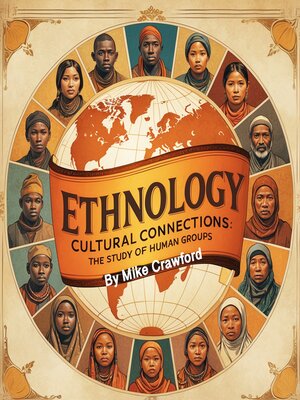
Sign up to save your library
With an OverDrive account, you can save your favorite libraries for at-a-glance information about availability. Find out more about OverDrive accounts.
Find this title in Libby, the library reading app by OverDrive.



Search for a digital library with this title
Title found at these libraries:
| Library Name | Distance |
|---|---|
| Loading... |
Ethnology is a branch of anthropology that focuses on the systematic study and comparison of cultures. It examines the origins, development, distribution, and interrelations of different human societies. Unlike ethnography, which involves detailed, first-hand observations of a single culture, ethnology takes a broader approach, analyzing data collected from multiple ethnographic studies to identify patterns, differences, and universal traits among human groups. By studying cultural practices, languages, beliefs, social structures, and histories, ethnology seeks to understand how societies evolve and how cultural factors influence human behavior.
The importance of ethnology lies in its ability to foster a deeper understanding of human diversity. In an increasingly interconnected world, recognizing the complexity of cultural differences is crucial for promoting tolerance, cooperation, and peaceful coexistence. Ethnology helps dispel misconceptions and stereotypes by providing a scientific framework for understanding how cultures adapt to their environments and interact with one another. This understanding is essential not only for academic purposes but also for addressing real-world issues such as globalization, migration, and cultural preservation.
Ethnology also plays a vital role in tracing the historical development of societies. By comparing myths, rituals, kinship systems, and legal codes, ethnologists can reconstruct past interactions between communities, shedding light on human history beyond written records. This comparative analysis allows scholars to explore how ideas, technologies, and social institutions spread and transform across regions and time periods. Such insights contribute to a more comprehensive understanding of human civilization and its shared heritage.







